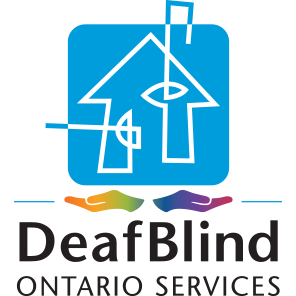Jeremy Davis’ second career is about giving back, helping others to live their best lives in a collaborative and team environment.
“As a man in my 40s, I was nervous about going back to school to pursue a second career in a Personal Support Worker (PSW) program… I had worked in the automotive industry for a number of years. Taking classes, using technology for post-secondary learning, and being responsible for another’s personal care needs were all factors I considered,” said Jeremy.
“However, while I was skilled at moving cars through the shop, I ultimately knew I needed more.”
A student placement with DeafBlind Ontario Services provided Jeremy with valuable learnings and paved the way to a fulfilling second career. “I was looking for a placement with an organization where I could utilize my critical thinking skills, personal care skills, and lived experience,” said Jeremy.
Intervenors are professionally trained to support people with deafblindness – a combined loss of vision and hearing – acting as their ‘eyes’ and ‘ears’ through the sense of touch.
By facilitating the exchange of information and assisting with communication methods, intervenors empower people with deafblindness to thrive.
“During my placement, I really saw that the intervenors were masters at bringing the outside world in. I learned that I love making a difference in the day-to-day lives of the people we support, advocating for their needs, and contributing to their independence.”
Jeremy did not leave his student placement. Today, he was been with DeafBlind Ontario Services working as an intervenor for nearly four years.
“I finally feel valued, this is my second family. Our team supports one another to learn, share, and contribute, while providing holistic care for the people we support.”
Jeremy’s advice for anyone seeking a new or second career is, “the integration of lived experiences, transferrable skills, and maturity help me to give more of myself as an intervenor. It is important to not discount experience gained in other industries or educational backgrounds that can be applied to a new role.”
To build awareness of this rewarding career choice, a new National Occupational Classification Code (NOC 42203) now includes “intervenor” and “deafblind intervenor” roles. Employment and Social Development Canada (ESDC) and Statistics Canada released this new code in late 2021 and will fully implement it this year.
DeafBlind Ontario Services strives to be a top employer in the field, dedicated to helping employees develop their talents and nurture their career aspirations through extensive and ongoing training and mentoring. The organization is hiring in many regions across the province. It’s a new year, start your rewarding career.
DeafBlind Ontario Services provides an array of services to people who are Deaf, hard of hearing, non-verbal, and deafblind that are customized to each individual’s unique needs, method of communication, and goals to enrich their life. Learn more and apply online: https://deafblindontario.com/careers/.




Recent Comments